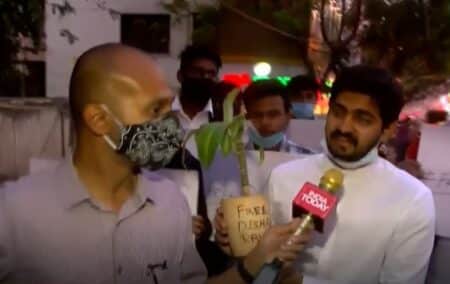The arrest of climate activist Disha Ravi for sharing a protest ‘toolkit’ to aid farmers now in the third month of their demonstrations against new agricultural laws has been described as an ‘unprecedented attack on democracy’ by Delhi Chief Minister Arvind Kejriwal.
Activists, journalists and opposition politicians – including former finance minister Palaniappan Chidambaram –have added their voices to the clamour against the arrest on Saturday of 22-year-old Ravi.
Several activists and journalists have also been arrested in recent weeks in connection with the protests.
According to a BBC report, the farmer protests have come to represent one of the biggest challenges faced by prime minister Narendra Modi’s Bharatiya Janata Party government.
It cites Delhi police, who arrested Ravi, as saying the dissemination of the toolkit suggested a conspiracy in the run-up to a huge rally on 26 January in which protesting farmers clashed with police. The police claim that Ravi, one of the founders of the Indian branch of the Fridays for Future climate strike, was a ‘key conspirator’ in the ‘formulation and dissemination’ of the toolkit and had shared it with Swedish climate activist Greta Thunberg.
But according to the NDTV news site, Ravi said after her arrest: ‘I did not make the toolkit. We wanted to support the farmers. I edited two lines on 3 February.’
The BBC quoted environmentalist Nityanand Jayaraman as saying: ‘This is a new low, even for India.’ Referring to Ravi, Jayaraman said: ‘These are the kinds of young people we should be celebrating, and not jailing.’
Farmers’ group Samyukta Kisan Morcha, one of the main groups behind the protests, expressed their support for Ravi and demanded her release.
Among others supporting Ravi are Indian film actor Sidharth Malhotra, Canadian poet Rupi Kaur and US Vice President Kamala Harris’s niece Meena Harris.
India’s protesting farmers are seeking the repeal of new agriculture reform laws which the government says will further open up India’s farming sector to corporate buyers and investment, but which farmers fear will threaten decades-old concessions guaranteed by the government and leave them vulnerable to the private market.

